2021 Impact Report
Get Started
We envision a future where millions more individuals can complete postsecondary education or training that helps them secure a good job, do meaningful work, contribute to their community, and lead a fulfilling life.
Marie Welsh
Graduate, The American Women’s College, Bay Path University
Marie Welsh is one of many successful graduates of Bay Path University’s American Women’s College, the nation’s first online, accelerated college degree program designed specifically for women. The goal is to equip more women with the technical and professional skills they need to transition from unemployment or low-income jobs into the well-paid, in-demand fields of cybersecurity and information technology — improving learners’ economic mobility while helping employers expand their talent pool.
Strada supports the work at this college in Longmeadow, Massachusetts, through a $1.6 million, three-year grant. Bay Path University Photo

We conduct research, engage in philanthropy, and invest in companies and organizations working to better connect education and training after high school to good jobs.
Meet the Strada leadership and Strada Board of Trustees.
We use our unique combination of resources and expertise to create change.
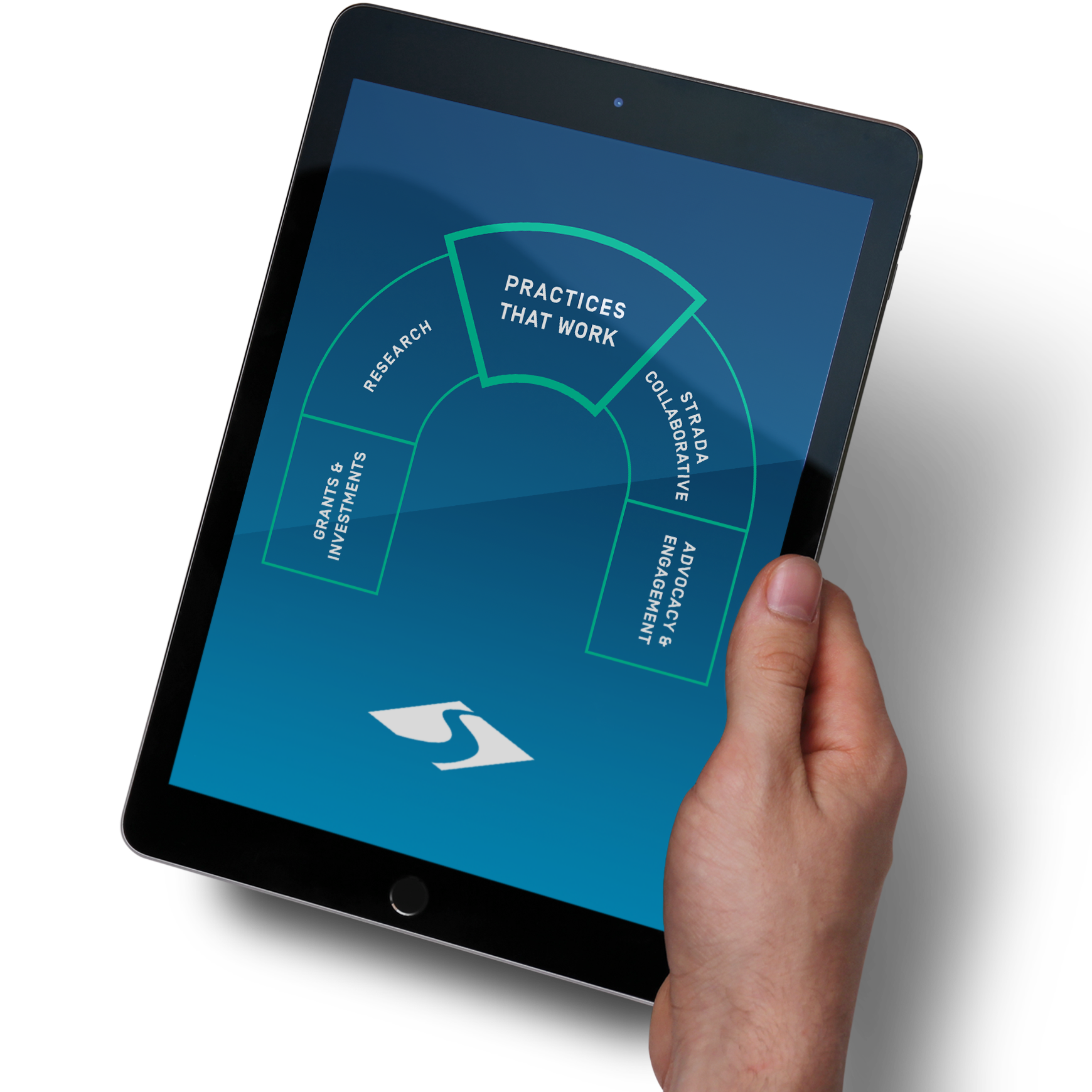
Through interviews, focus groups, and surveys, we learn how students experience the various pathways from education to work. We use these insights to inform policies and practices that will improve the quality and value of education and training and will benefit the students who need it most. Our goal is to make student perspectives relevant to education providers and policymakers and to provide tools for them to be more accountable to students’ needs.
Keep Reading
Strada Public Viewpoint
Strada Public Viewpoint is a rapid-response research initiative launched in March 2020 to provide timely insights on key education and workforce issues. Leveraging data from multiple national surveys representing the perspectives of more than 50,000 adults, the research is intended to inform education and training providers, policymakers, and employers who are helping people complete valuable and purposeful education pathways.
We focus on four areas of research:
Our annual Strada Outcomes Survey of alumni provides institutions with a means to gather the perspectives of their graduates over the past 20 years. Applying a new framework for measuring success after graduation, we asked alumni if they are earning a decent income, whether they felt their education was worth the cost, and whether it helped them achieve their goals.
Source: 2021 Strada Outcomes Survey, bachelor's degree graduates.
Our grants and investments support organizations and companies that develop promising opportunities, expand proven examples of success, and sustain models that are working. We measure the social impact and returns of all of our investments and incorporate what we learn into future decisions. This learning includes conducting and sharing research so the most promising practices and organizations receive more attention and support from additional funders.
Keep Reading
First Class
When Strada announced a $6.5 million gift to the Jackie Robinson Foundation in 2017, it was the largest single gift Strada had awarded and the largest the foundation had received since its founding in 1973. Ten students sponsored by Strada earned their bachelor’s degrees in 2021, making them the first class of Strada-Jackie Robinson Foundation Scholars.
The program, with more than 1,500 alumni over its 49-year history, now supports 263 Jackie Robinson Foundation Scholars at 118 colleges and universities nationwide. And while the scholarships — up to $30,000 over four years — provide financial support for outstanding high school students to attend the accredited four-year school of their choice, the program’s differentiator is the extensive support that surrounds the students. That programming helps students navigate their college environments, explore career options, develop leadership skills, and embrace a commitment to service. Jackie Robinson Foundation Photo
We partner with organizations focused on student success, insights and institutional support, and workforce development.






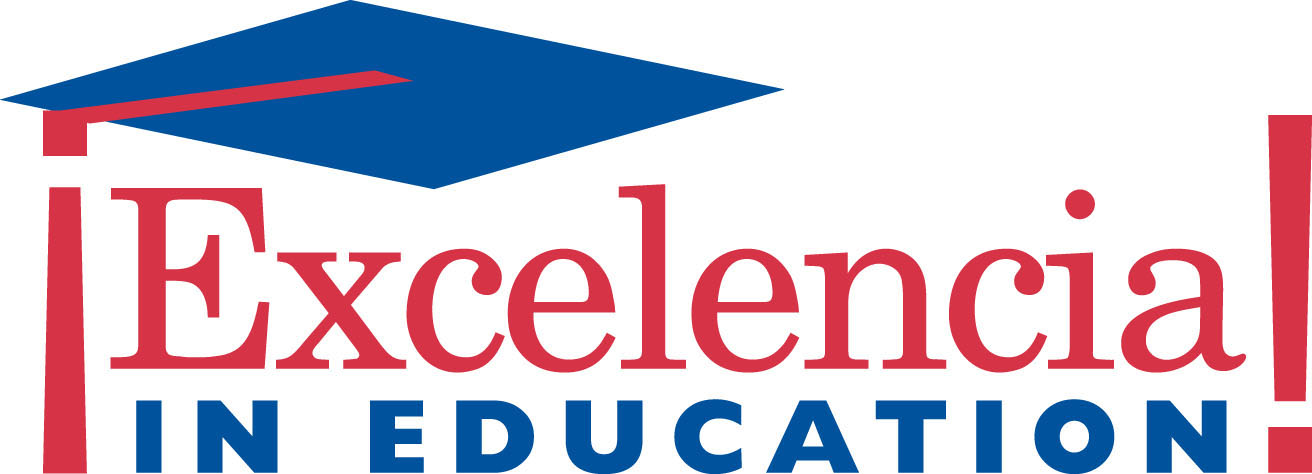
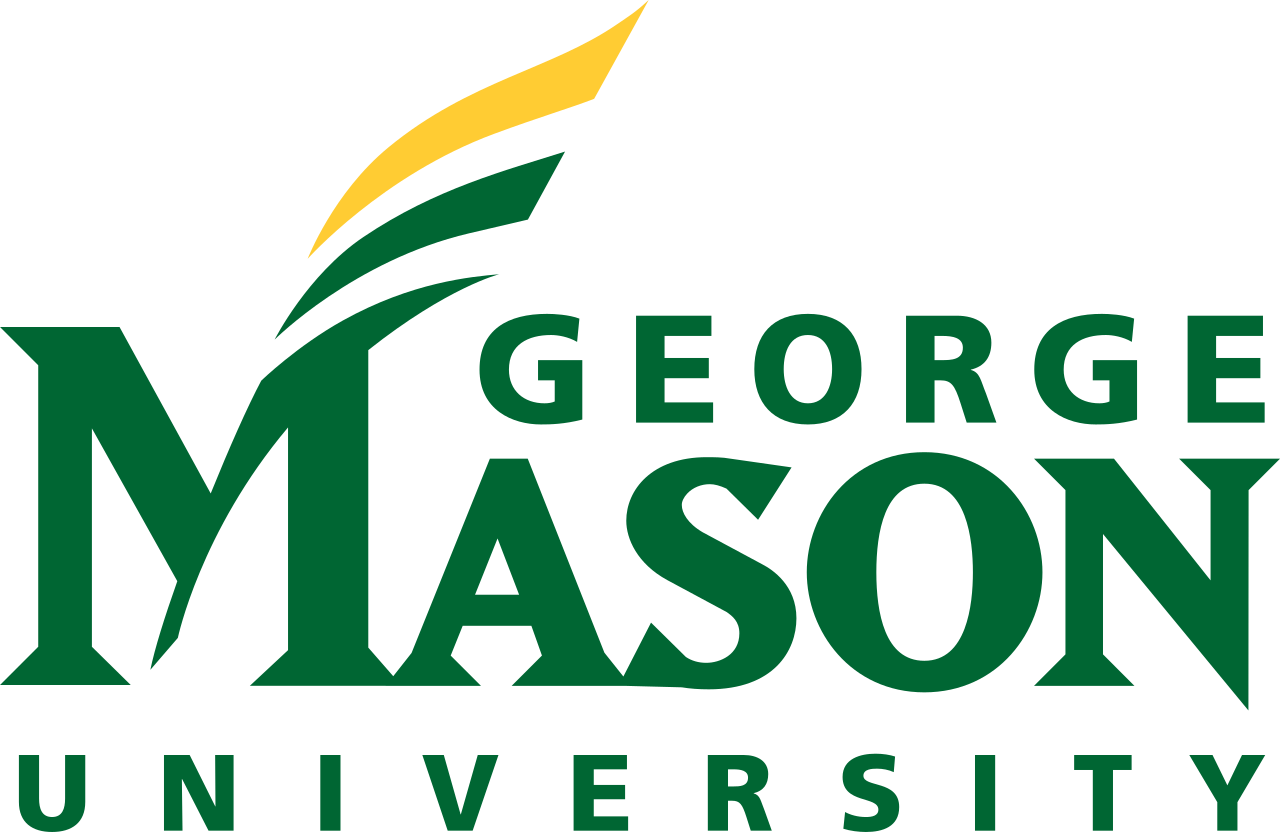
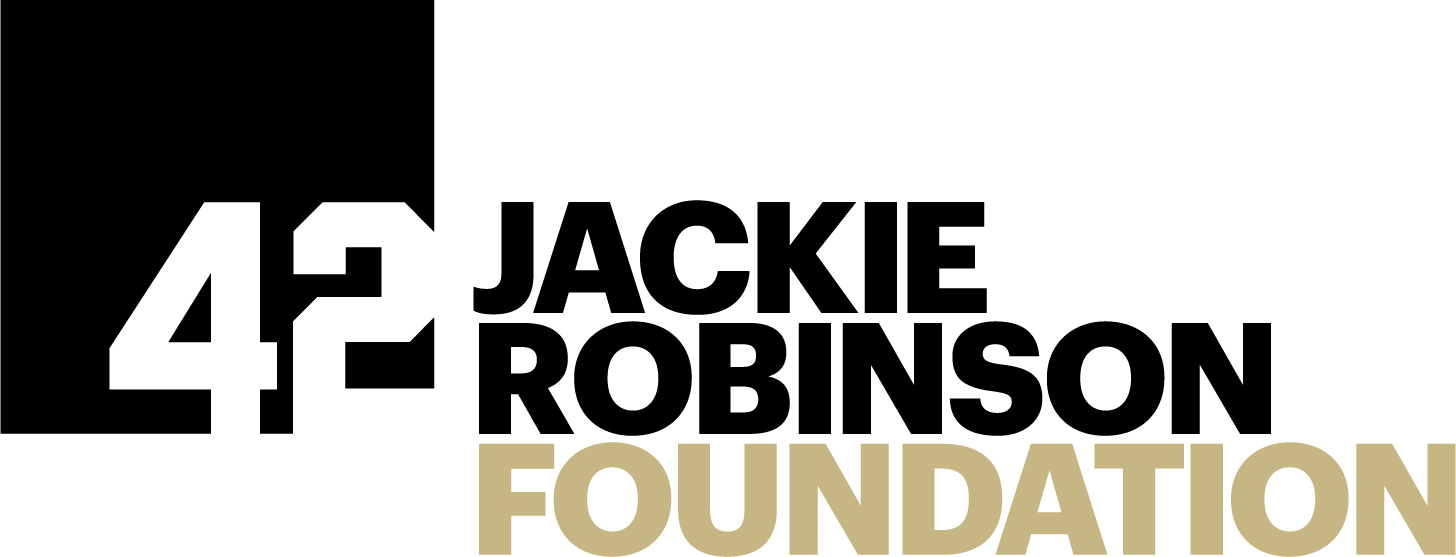


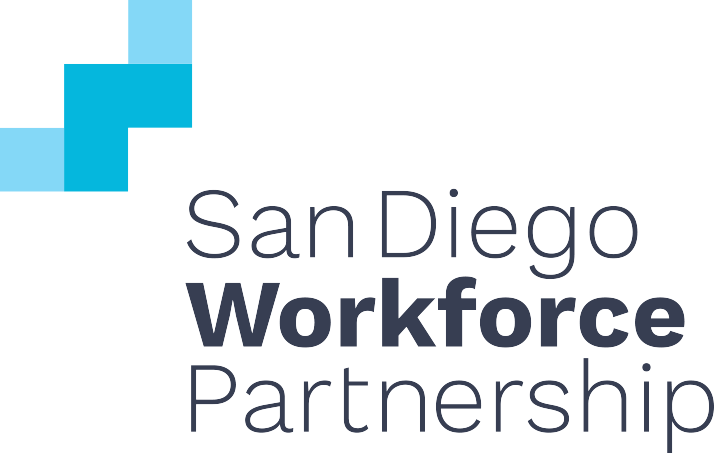
At Strada, we seek to invest in companies redefining the pathways between education, training, and workforce success.





















Our long-term goal is to create a new norm for how we define success for education after high school. Given the broad range of our work, we engage every day with all aspects of the education and workforce universe. We advance our collective work by sharing what we’re learning through publications, podcasts, and media activities, and by bringing our colleagues and partners together to collaborate and amplify our collective efforts.
Keep Reading
Sharing What We Learn
Strada Impact President Ruth Watkins, former president of the University of Utah, joined a panel of college presidents in August 2021 at the ASU+GSV Summit in San Diego while Interim CEO Tom Dawson took part in the conference’s panel discussion about new models of philanthropy.
Through our podcast, Strada Impact President Ruth Watkins talks with innovators who are challenging the status quo and exploring scalable solutions to help millions of people navigate between learning and earning.
Our newsletter offers action-oriented information to help educators, employers, and policymakers forge clear, purposeful paths between education and work.
Our webinars bring together Strada researchers and leading experts in postsecondary education and the workforce for insightful conversations about how our learnings can improve education and career outcomes.
Organizations in Strada Collaborative serve as innovation labs that test ideas and develop real-world solutions.
Keep Reading
Roadtrip Nation
Ryan, 24, of Asheville, North Carolina, is a Roadtripper who boarded Roadtrip Nation's green RV for the "Skill Powered; Build the Life You Want" documentary. He has been working in HVAC — heating, ventilation, and air conditioning — for three years. His parents didn’t work in the trades, but the memory of visiting his dad, stuck in a cubicle at work, made Ryan certain he didn’t want to be in an office. Ryan grew up with a love for baseball and football, and his two brothers made sure he turned out tough and ready to handle anything. The three of them want to start their own business together. You don’t need a four-year degree to be successful, he says — and he wants to prove that you can live a great life by working in the trades. He joined the Roadtrip Nation roadtrip in hopes of meeting other like-minded people, hear their stories, and see what they’re about. Roadtrip Nation Photo
CAEL helps organizations succeed by providing expertise, resources, and solutions that effectively support adult learners as they navigate on- and off-ramps between education and employment. CAEL partners with entities across the adult learner ecosystem to help create actionable career pathways along the journey of lifelong learning and meaningful work.
Education at Work creates employment pathways for underserved student populations that lead to personal growth, financial freedom, and career success. Its mission is to prepare college students for careers and enable them to graduate with less debt.
In 2021
Amount Students Can Earn in Tuition Assistance
InsideTrack is passionate about improving enrollment, persistence, completion and career readiness for learners through partnership with higher education institutions, governmental organizations, nonprofit organizations, and employers. Impact is delivered through direct student coaching, as well as staff training and professional services.
Engaged With InsideTrack Coaches in 2021
Roadtrip Nation creates and shares stories that humanize the career exploration experience and empower individuals to connect their interests to fulfilling careers. Roadtrip Nation is one part media production, one part career education platform, and 100 percent mission-driven.
Have Access to the Roadtrip Nation Experience Course
Each Year Through Education Partnerships, Including College Board, Naviance, and Boys & Girls Clubs of America
There are specific practices that have been proven to help students succeed, including guidance, connections to employment, and financial and other resources that help make education affordable.
Brittany Santos
Student, George Mason University
Brittney Santos of Arlington, Virginia, is among 2,200 students enrolled in ADVANCE, a Strada-supported partnership between Northern Virginia Community College and George Mason University that gives NOVA students personalized support to complete their bachelor’s degrees while helping them save time and money.
The program works to ensure students have the administrative and coaching support to succeed, not only in school but also in launching a career. “I don’t even know what I would have done if I didn’t become part of this program,” Santos said. "It’s taken so much weight off my shoulders to know I’m on the right path."
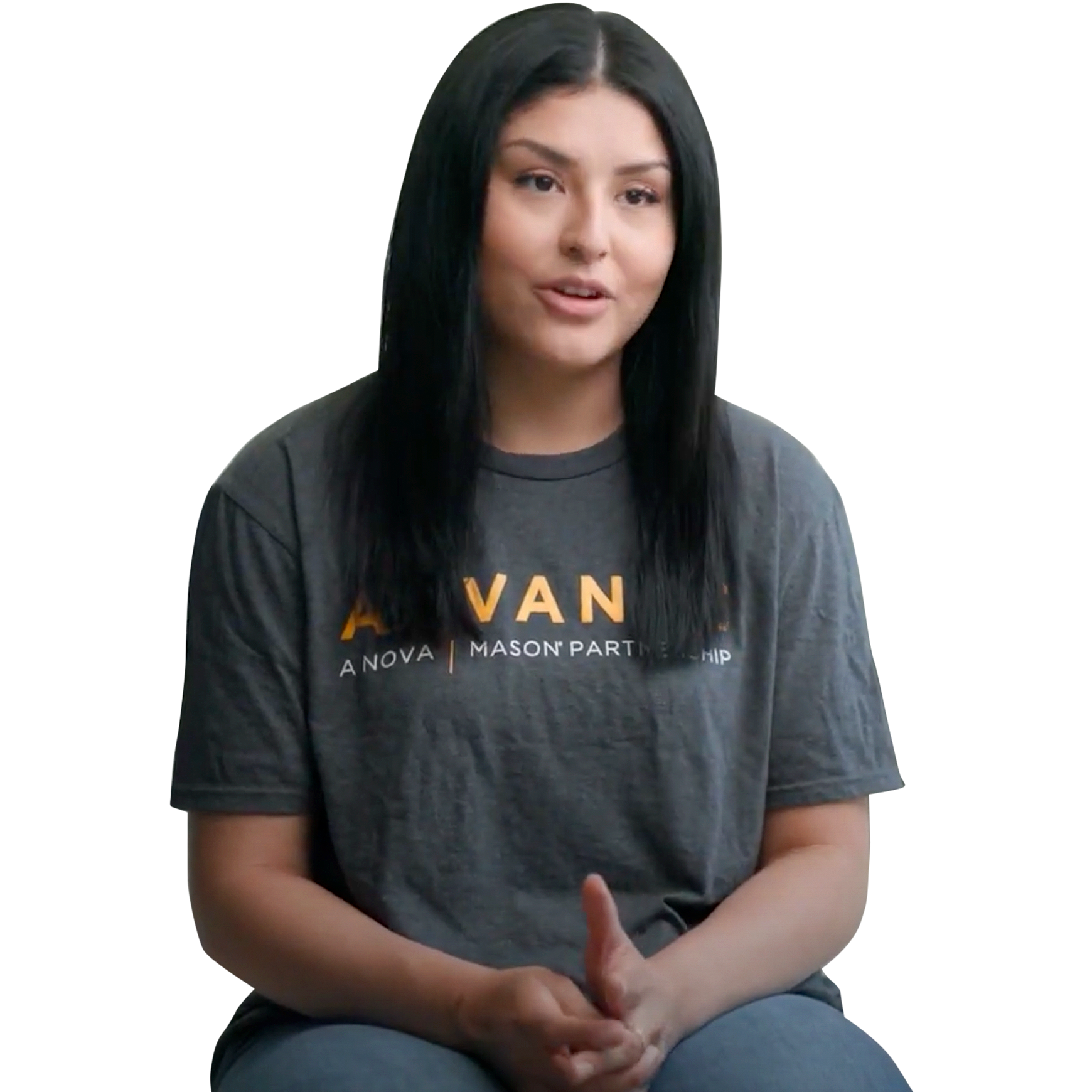
Students have a dramatically better chance to succeed through and beyond completion of a degree or credential when they receive personalized guidance, advice, coaching, and support to achieve their education and training goals.
Keep Reading
A Platform for Navigating Education
Strada invests in companies that are finding solutions to help students navigate their education and career pathways.
One example is Strada investee EduNav's technological platform, which helps students efficiently navigate their education pathway by generating personalized degree plans. Each student’s plan takes their individual needs into account, along with real-time data from student-information and degree-audit systems, current seat availability, and advisor guidance. As a result, students can make more informed decisions and optimize their education pathway through completion and into a career.
At Florida International University, where only 24 percent of first-time, full-time students graduate on time, a study of the school’s first EduNav programs found that 1,600 students (6.4 percent of its student body) could potentially graduate a full term early by using the platform.Florida International University Photo
Guidance
Strada research released in June 2021 was based on surveys of graduates from the classes of 2020 and 2021 who had intended to enroll in education after high school but decided to postpone their plans. These disrupted students identified guidance, affordability, and stronger connection to careers as the most helpful solutions for reconnecting them to education.
Source: Strada Public Viewpoint, June 23, 2021.
Guidance
Just as creating curriculum pathways required faculty members to align their curricula, the institutions also pulled together regional employers to discuss the skills they expect from students and how those skills relate to college degrees. With funding from a Strada grant, George Mason’s ADVANCE program created the Career Accelerator Toolkit, a web-based tool informed by employer feedback and labor market data that enables students to track the skills they’ve learned in class, those they will pick up if they stay the course, and how those skills relate to jobs in their areas of study.
Guidance
The organization, which is part of Strada Collaborative, promotes learner-centered education and helps break down silos to create a consistent, positive student experience — helping both students and institutions thrive.
More than 2.6 million students have benefited from InsideTrack coaching over its 20-year history, and strong evidence of its coaching efficacy includes research published in the What Works Clearinghouse, an initiative of the U.S. Department of Education's Institute of Education Sciences.
But some of the most important demonstrations of InsideTrack’s value can be found in case studies of its work with partner institutions.
higher retention among students who received coaching
higher retention among African American students who received coaching
Policies and practices can make it possible for students to receive the financial resources they need to make education and training affordable. Students also need other supporting resources to ensure they can juggle finances and complicated lives while completing their degrees. In addition, they need access to other work-based learning and internship opportunities that connect them to mentors, social capital, and networks to advance their education and career opportunities.
Keep Reading
Tuition Help
Education at Work, part of Strada Collaborative, helps relieve students’ financial burdens by offering a regular hourly wage to student employees while also providing the possibility of earning up to $5,250 per calendar year in tax-free tuition assistance.
The goal is to help students complete their education with as little debt as possible, setting them up for success after graduation. Education at Work students graduated with about $15,000 less student loan debt — 60 percent less than peer groups. They overwhelmingly report that the tuition assistance they earn is critical to funding their education, that they are confident in their ability to repay any loans, and that their experience positively affected their ability to complete their degrees.
Resources to Complete
Strada investee Edquity, a technology provider in Brooklyn, New York, provides partner colleges and organizations with a mobile platform that makes it quicker and easier for students to apply for emergency aid in a manner that is equitable, effective, and federally compliant.
In the last six months of 2021 alone, Edquity helped its partners distribute more than $75 million in federal funding.
Resources to Complete
The program, with more than 1,500 alumni over its 49-year history, now supports 263 Jackie Robinson Foundation Scholars at 118 colleges and universities nationwide. And while the scholarships — up to $30,000 over four years — provide financial support for outstanding high school students to attend the accredited four-year school of their choice, the program’s differentiator is the extensive support that surrounds the students. That programming helps students navigate their college environments, explore career options, develop leadership skills, and embrace a commitment to service. In 2021, 10 Jackie Robinson Foundation Scholars graduated who had been supported by Strada since they began their college journeys in 2017, the year Strada announced a $6.5 million gift for the program. At the time, it was the largest single gift Strada had awarded and the largest the foundation had received since its founding in 1973. Since then, Strada has awarded an additional $1.2 million to fund 42 Jackie Robinson Foundation Scholars.
Making effective and integrated connections between education and work improves completion and employment outcomes for students. These connections include internships, apprenticeships, and other work-based learning that is relevant to people’s career exploration and choices.
Keep Reading
Loyce Shelley
Student, University of Memphis
Loyce Shelley’s son was a student at the University of Memphis when she was awakened to the idea that she could still finish her own college degree. She also learned that the years she had spent building a career without one could help her finish a degree.
As a member of CAEL, the university embraces credit for prior learning, which creates an avenue for returning students to demonstrate the skills and knowledge they learned outside the classroom and possibly earn credit for it. “A light bulb went off for me,” Shelley said. “I kind of looked around the room and wondered, ‘Am I the only one who hasn’t graduated?’”
When university faculty reviewed Shelley’s learning portfolio, they found she had demonstrated college-level learning through her event planning business and also through her work advocating for her disabled son and helping other parents do the same. The credits they awarded helped her complete her degree faster, and she will graduate from the University of Memphis in May 2022.
Connection to Employment
Forty-eight years later, CAEL continues to build on research into the value of helping adult learners earn credit for prior learning, a term for the methods colleges, universities, and other training providers use to evaluate learning that has occurred outside the traditional academic environment.
Overall, adult learners who earn credit for prior learning are 17 percent more likely to graduate than those who do not.
Connection to Employment
In a nationally representative Strada survey of college alumni, after controlling for differences in student characteristics, those who reported stronger connections to career as undergraduates were more likely to consider their education valuable, alongside other improved outcomes beyond completion.
As an example, this chart models the expected influence of connection to career on Strada beyond completion outcomes for a first-generation female student of color holding mean-level ratings for academics and community.
Going from no career connections to extremely valuable career connections, the student’s predicted likelihood of earning more than $40,000 per year increases by 37 percentage points, their likelihood of believing their education was worth the cost increases by 29 percentage points, and their likelihood of believing their education helped them to achieve their goals increases by 27 percentage points.
Connection to Employment
Certificate offerings include digital marketing, data analytics, 3D immersive design, salesforce administration, and project management. The ultimate goal: to help students gain access to good jobs.
Pathstream works with leading technology companies to identify the fastest-growing career areas, then builds interactive learning programs to prepare students for tasks they would need to do on the job.
Average salary increase for learners who complete a certificate program, resulting in an average annual salary of $73,000.
of students in Pathstream Career Services get a job interview within two weeks of completion.
of participants who earn a certificate get a new job within six months, and 98 percent get a job within a year of completion.
Connection to Employment
Strada grantee Braven defines a strong first job as full-time, requiring a bachelor’s degree, and including some combination of promotion pathways, employee benefits, and a market-competitive starting salary.
In 2020, 420 Braven Fellows graduated from college. This class, which graduated into the worst labor market in many years, outpaced their peers nationally in strong job attainment or entrance into graduate school by 22 percentage points (58% vs 36%) within six months of graduation.
A key to Braven’s success is its unique partnership model with universities, employers, and philanthropists.
We work across the full spectrum of educational experiences after high school to help ensure people have clear pathways to success at any stage in their educational and career trajectory and through any entry point.
Willena Glaster
Graduate, Brandman University
Willena Glaster had a powerful motivation to return to college after 20 years — a promise to her mother that she would complete her degree and “elevate my family from poverty and show them that anything is possible.” Her vision? To open her own charter elementary school. Yet like many adult students, Glaster faced the challenge of fitting school into a very full schedule.
Glaster’s university partnered with student coaching pioneer InsideTrack, part of Strada Collaborative, to provide coaching services. “My coach encouraged and supported me through many obstacles. InsideTrack gave me the strength and self-confidence I needed to go back to school.” Glaster graduated, proving the power of a promise. InsideTrack Photo

These anchor institutions provide critical platforms for the educational and economic advancement of their students.
Historically Black colleges and universities are a significant driver of degree attainment and economic mobility, especially for students of color and those from low-income families, and Strada wants to play a role in supporting that success and broadening its reach and impact.
Keep Reading
How We Collaborate
Alabama State University is among 28 historically Black colleges and universities to partner with Strada in 2021 for the HBCU Initiative, a $25 million commitment to HBCUs and their students. To build the Strada HBCU Initiative, we met with leaders from more than two dozen historically Black colleges and universities and asked: How could this work recognize HBCUs as a significant driver of degree attainment and economic mobility — and not only support that success, but also extend it? Alabama State University Photo
Strada has a commitment to HBCUs and their students that is designed to elevate the transformative economic, social, educational, and cultural influence of HBCUs.
The HBCU Advisory Council of current and former HBCU presidents and chancellors shaped and defined the core components of the HBCU Initiative.

(co-chair)
Strada Board of Trustees, President
Bowie State University

(co-chair)
Retired Strada Trustee and Former HBCU President

President
Johnson C. Smith University

President
Benedict College

Former U.S. Assistant Secretary for Postsecondary Education
Former Acting President
Grambling State University

President
St. Philip’s College

President
Alabama State University
The Strada HBCU Initiative’s first offering, Strada Scholars, is available to all HBCUs and launched with more than two dozen inaugural institutions during the 2021-22 academic year.




























Universities and colleges continue to be powerful engines for economic mobility and centers of innovation. We focus on identifying, testing, and expanding bachelor’s degree programs and models that deliver success beyond completion for individuals from all backgrounds and all stages of life. We support traditional campuses as well as new programs that allow students to secure a bachelor’s degree by combining multiple credentials.
Keep Reading
Innovation Grants
Virginia Tech was among 15 institutions that received a $250,000 innovation grant in 2021 to improve student outcomes after college graduation. Courtesy of Virginia Tech
The Strada $10 million Beyond Completion Challenge, in partnership with the Taskforce on Higher Education and Opportunity, helps institutions launch, test, and scale innovations to improve career and life opportunities after graduation for more students of color as well as first-generation students, those who struggle to afford education, and adult students and workers.
New workforce-readiness solutions and nondegree credential programs are providing cost-effective pathways to good careers that align with workforce needs. These industry-led credential programs are rapidly expanding, particularly in areas with high demand for skilled workers, such as health care, information technology, and advanced manufacturing.
Keep Reading
Credentials and Equity
The University of Texas System is among 15 winners in the initial phase of the Strada Beyond Completion Challenge, a $10 million grant challenge funded by Strada Education Network. The program is designed to help higher education institutions identify and expand new solutions that will improve career and life opportunities for more students of color, first-generation college students, those who struggle to afford education, and adult students and workers.
Across its 13 campuses, including UT Arlington, the UT System hopes to integrate microcredentials into existing academic programs students already are pursuing. And the UT System is taking its plans even further, using microcredentials and skills badges to target majors with low earnings that draw a high proportion of students of color — a step designed to diversify the state’s talent pipeline and create more equitable outcomes for bachelor’s degree holders in Texas.
"What we’re aspiring to do is embed into undergraduate degree programs skills-based industry certifications with the hopes that will make students more attractive in the labor market and maybe even help them into career paths they wouldn’t otherwise pursue," said Lydia Riley, director of academic affairs for the University of Texas system. University of Texas at Arlington Photo
Nondegree credentials include a diverse range of learning experiences, such as certificate programs at community colleges, apprenticeships, vocational training, industry-based certifications and occupational licenses, and more. Strada research released in July 2021 examined the prevalence, quality, and value of nondegree credentials by length of program, field of study, provider, gender, race and ethnicity, and other factors.
Community colleges can meet the needs of the local community and employers simultaneously. We focus on building the capacity of community colleges to meet community and workforce needs, supporting partnerships between community colleges and employers, ending long-standing barriers to transfer, and increasing four-year degree programs at community colleges in areas of high demand.
Keep Reading
Compton College
Compton College, a 7,000-student community college in Los Angeles County, California, worked with Strada investee Edquity in the early months of the COVID-19 pandemic to issue $250 emergency grants to students in need. The grants were intended to head off the financial struggles that can make progress challenging for students. The work was highlighted in the Strada 2021 “Powering Purpose” report. Compton College Photo
This finding is part of Strada research released in January 2021 and based on the 2020 Strada-Gallup Education Consumer Survey and the Strada Student Viewpoint Survey.
U.S. community colleges were disproportionately affected by pandemic-era enrollment declines, with the total number of students down 13.2 percent in fall 2021, compared with 2019. Strada research also showed 1 in 5 community college students expected to delay their graduation because of COVID-19.
Strada Public Viewpoint, January 2021.
Together, we can strengthen the links between postsecondary education and equitable economic opportunity.

I have a very personal connection to the work of Strada. From about age 6, I grew up as the son of a single mother in Mississippi. While we were never truly poor, I experienced frequent feelings of economic insecurity that lingered with me as I was growing up. From a young age, I saw postsecondary education as a pathway to economic security and mobility, yet I also experienced the challenge so many learners face in weighing my aspirations against the expense and time commitment of various higher education options I considered.
For decades, I have had a deep personal, professional, and intellectual interest in the connections between postsecondary education and economic opportunity. I have witnessed the transformational impact of higher ed in my life and those of many others. Through my professional work, I also have seen the impact that postsecondary education can have on the economic competitiveness and growth of regions, states, and our country.
Through our work at Strada, we aspire to help postsecondary education institutions and training providers to extend that impact by enabling millions more people to secure meaningful, well-compensated employment and economic mobility.
As we move forward together as partners in this mission, I look forward to exchanging ideas for how we can strengthen the links between postsecondary education and equitable economic opportunity.
Working together, we can build on the important work that already has been done, while cultivating new ideas to improve outcomes for the millions of individuals across our country who haven't yet experienced the full promise of higher education and economic opportunity.

President and CEO, Strada Education Network